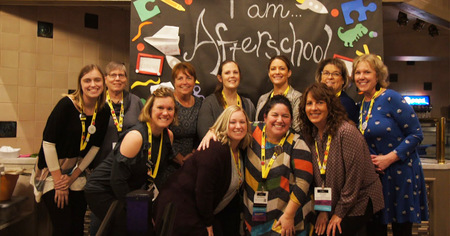What some people fail to recognize is the discipline, dedication and character martial arts students have built through their martial arts journey.
As a martial arts school owner, I teach our students that there's more to it than simply coming to class and learning to punch and kick: Martial arts is a way of life. Students train to develop skills physically, emotionally and mentally to define their "black belt excellence"—the kind of person they will be not only in class but also in life.
As a before-school and afterschool program coordinator, I have taken my work with youth through martial arts and applied it to the students I work with. A child doesn't have to go to a martial arts studio and earn their black belt to learn the core character values and develop their own "black belt excellence." Here are five character traits that help students develop social and emotional skills that can be applied through their life's journey. In my classes we call them the Tenets of Tae Kwon-Do, but they're also known as the soft skills of social development.
COURTESY
Courtesy is to exhibit kindness and respect to friends, peers, teachers and family members. In the field, this could be working with students to take the high road in an argument, extending friendship to others in need, being respectful when there are differences between friends, and helping them find the understanding to respect the decisions of their adults, even if there is a disagreement.
INTEGRITY
It can be challenging for children to develop the traits of honesty and fairness. They face these challenges in our program during game play—if accidents happen, if there's a consequence laid out between individuals or groups, if a teacher makes a decision that students don't agree with. Staff can start to build integrity while teaching empathy, teaming with students to understand their actions and helping students see how their actions can make others feel. The end goal is for students to understand that they should make the best choices, even when no one is looking.
PERSEVERANCE
Many people will say simply to "never give up." Yet we know there's more to this as we study grit. The youth we work with should learn that struggling with a hard task or becoming frustrated when losing is a normal emotional state. Perseverance is when the children make the choice themselves to keep trying at a difficult task, know when to ask for help, or practice until their goals can be met. The measure of this character trait does not always come with the completion of the perfect accomplishment, but that the child continued to work to overcome the feeling to give up. Program staff can help by encouraging children in positive ways, assisting in creating smaller goals to accomplish bigger goals, and letting children struggle while learning without providing the immediate "easy" answer.
SELF-CONTROL
Learning to control your physical and emotional self is a struggle for a majority of adults, so to make this an expectation for children seems nearly impossible. Program staff can guide children by providing strategies to aid in self-regulation, expression of feelings and how to recognize them, and taking responsibility for their own actions in social situations. For example: When a student becomes upset over an incident with another child on the playground—and is ready to take physical action—a staff member can guide this student in breathing techniques to calm the mind and aid in bringing them out of fight or flight. Once the student is calm, a conversation can happen for the student to express what they were feeling and go through their options of response from a calm mind and body.
INDOMITABLE SPIRIT
To be able to find the courage and confidence to take on any challenge that lies in front of them is a trait we hope all of our students leave our programs with. This value is not something that can be taught, as each student must find their own path, but our program staff can help build students up so they begin to believe in themselves. By providing opportunities for each student to find success in their day, celebrating the smallest achievements, and building trusting student-staff relationships, staff can begin to help the student build a positive self-image foundation.
"Black belt excellence" is the idea that we can all strive to achieve as educators, coaches, parents, counselors ... et cetera. It's for us to build a foundation for our children so they begin to develop their skills to find success in their world not only scholastically, but also socially and emotionally.
Written by Tyler Kearns, Program Coordinator for Clayton Kid Zone, and owner and master instructor at Axiom Martial Arts.




